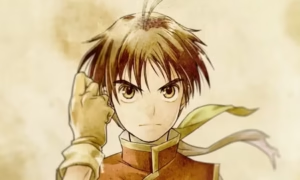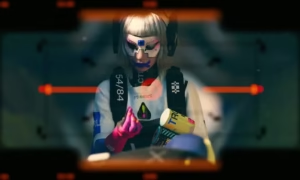South Park: Post Covid – Different Time, Same Jokes
South Park has changed its equation throughout the long term, and the current formula experiences seriously when extended twenty minutes to two hours. You can envision any of the running jokes of the Post Covid specials being acceptable in a typical episode; however, when stretched out over an entire length plot, hitting a similar note over and over, it’s trying you to lose interest.
A piece of the issue is that there’s no genuine improvement of any of the Jokes – and I underwrite that justifiably. You can see them crash into the show like stakes, and separate independent things, absent a lot of care for what’s happening around them for sure they’ve wound up stuck through. The primary occasion of every one of the Jokes is essentially indistinguishable from the last.
Post-Covid’s design of two drawn-out TV motion pictures makes this incredibly offensive. Asking your audience to tune in once more, after fourteen days, to be blessed to receive overall precisely the same jokes as the primary portion appears to be an analysis of how little glitter you want to wave around to keep the punters’ consideration.
I’m foregrounding conversation of the jokes since South Park is a satire show. However, it appears marginally deceptive to pass judgment on Post Covid like this. As I say, the Jokes are there, pounded into the story like stakes – may be significantly more so than we’ve set up since they appear to be the barebones structure from which the remainder of the show hangs.
More than anything, Post Covid is relocating the setup characters and setting of South Park into a straight dramatization, with a couple of fossilized jokes waiting at the lower part of this uncommon mixed drink and bouncing once in a while to the surface. The plot is the sort of uplifted reality you may expect of South Park, or for sure any animation; however, it’s played straight all through – amazingly straight for something including time travel.
This is eventually all in the help of one of South Park’s capital-m Messages, generally a significant part of the show – where, toward the finish of the episode, one of the heroes would pronounce “you know, I’ve mastered something today… “. Here it’s basically (minor spoiler alert) that Covid’s been terrible, so we should all give each other a little leeway. Praiseworthy feeling sounds like a reason coming from individuals who went through two hours poking a similar fun at how Alexas resemble grumpy ladies.
Indeed, even the inside and out dramatization, however, is by all accounts an emotionally supportive network in support of the focal gadget of ‘here are the characters you know and love, doing (x)’. It’s the large Post Covid exceptional. Would you confirm or deny that you are invigorated? What’ll they get up to this time?
The creators assume this perspective has undeniably more substance than it does, and you can essentially feel them stopping for the studio crowd to hail when an expression pops up or when a recognizable person shows up.
Also, there’s something of a giveaway in the way that it’s presently inclining unequivocally on its inward group. This is passed a little wink to the camera when Kenny unavoidably kicks the bucket, this is currently fair and square of equal world history, similar to our own yet particularly unique, where Covid all started with Randy Marsh fucking a pangolin – all of which Post Covid accepts that its crowd will be comfortable with, most likely accurately.
For a show that is – God almighty, 24 now, ready to cast a ballot, drink, purchase a firearm, basically mature enough to have a very decent end of the week in Vegas – this is, if a reasonably sluggish decision, essentially justifiable. Many fans will have grown up with it; some will have known it for their entire life. For better or more terrible, it is a piece of them. For the genuine obsessives, seeing their old fictitious buddies once more, responding to recent developments, is by all accounts all that could be needed.
There’s a more extensive conversation to be had here about purported ‘parasocial connections’: the single direction connections one may have with an entertainer, artist, or another superstar, whose cautiously arranged and cleaned yield is by definition much more engaging than exhausting typical individuals. What’s more, they request such a great deal less, as well.
(As a sort of web character, this is most likely what I’m intended to be empowering – however, for the good of God, on the off chance that you haven’t as of late, reach out to your loved ones and let them know you love them.)
Like South Park: Post Covid itself goes – indeed, it’s a settled establishment staying afloat since quite a while ago. Also, well, they may do, considering they’ve been conceded a pile of fourteen other movies by their kindhearted Teevee divine beings. Maybe they need to make anything noteworthy to keep the standard bushels of cash coming in.
More than the other long-running vivified shows, South Park has been willing to switch things around, as we set up when we came in. However, involving a light facade of parody as a vehicle to remark on recent developments is something they’ve been accomplishing for quite a while now (and is not an equation selective to their show).
Then again, utilizing their set up the realistic universe – an expression I try to avoid sending – as an establishment for spreading into totally various types would be another stage for South Park. The closest they’ve come to that was with their Halloween specials, similar to The Simpsons’ Treehouses of Horror, a reason to convey some non-sanctioned creepiness, yet even those weren’t a complete class shift.
Presently, with a request for fourteen movies to fill, we could well see them pursue this course head-first. Nonetheless, they’ll make some extreme memories concocting any unrefined substance so particularly considered as a worldwide pandemic. And surprisingly, the Post Covid duology couldn’t turn two hours out of that by itself, attracting different patterns of the age (just as the Japanese-enhanced bulletins from Blade Runner, a reference they appear to be altogether too pleased with).
What’s maybe generally illustrative of Post Covid’s inclination to hold up South Park’s different jokesters like genuine players – and of clear courses of comic potential being merrily left unfulfilled – is the grown-up Cartman changing over to Judaism. Kyle quickly presumes this is working to something, some terrific last zinger after in-universe long stretches of development, and the crowd presumably do as well.
However, even this, the generally absurd animation picture against Semite Cartman brandishing a yarmulke, is last played straight. Furthermore, when Cartman gets the terrible future he merits, this also isn’t played for yuks (as it has been before) but instead as an apparition at the dining experience, a disheartening, calming second in a generally cheerful closure.
In case we neglect, it’s Cartman who has in every case been the show’s breakout character: an eight-year-old Archie Bunker whose fanaticism could be conceivably put down to his childhood (yet at the same time be valued by real narrow-minded people), a model for the numerous id-released comic manifestations who continued afterwards, and incidentally the mouthpiece on any excellent judgment moral illustrations excessively hot to be given to Kyle conceivably.
Of South Park’s four heroes, everyman Stan is the nearest to the excellent picture of the principal character. Yet, Cartman, the more energetic symbolic abhorrent colleague, is a nearby second. He’s absolutely the one a great many people relate to, regardless of whether this is in an indulgence kind of way. What’s more, this is the person who Post Covid’s better future, where everything worked out, brings low.
As an account decision, this is an out thing of the profound quality plays of old – the trouble makers are rebuffed for their wrongdoings, and the heroes are compensated. However, given the messy way Cartman tracks through Post Covid, calling him a ‘trouble maker’ in light of that is somewhat shortsighted. It can appear to be legit in thinking about the show in general, with the 25 years of plots that have gathered in his kid body (during which, indeed, he’s timed up quite a few abominations). Furthermore, here, once more, we return to Post Covid’s weird position, not just inclining vigorously on all that earlier ordinance yet being unfathomable without it.
You’ve as of now seen me pull back from the expression ‘artistic universe’, yet that is generally very plainly what’s happening here – particularly with the pile of twenty other impending movies. Gone are the days when South Park was the social agitator, positioning a stop-movement snook at power. Presently, it is the foundation, and its adherents adore its standard as strictly as a classicist would Ovid’s Metamorphoses, however much it may, in any case, need to imagine it’s the senseless paper-doll show about fart jokes. Like any twenty-something, it ends up to some degree dislodged.







